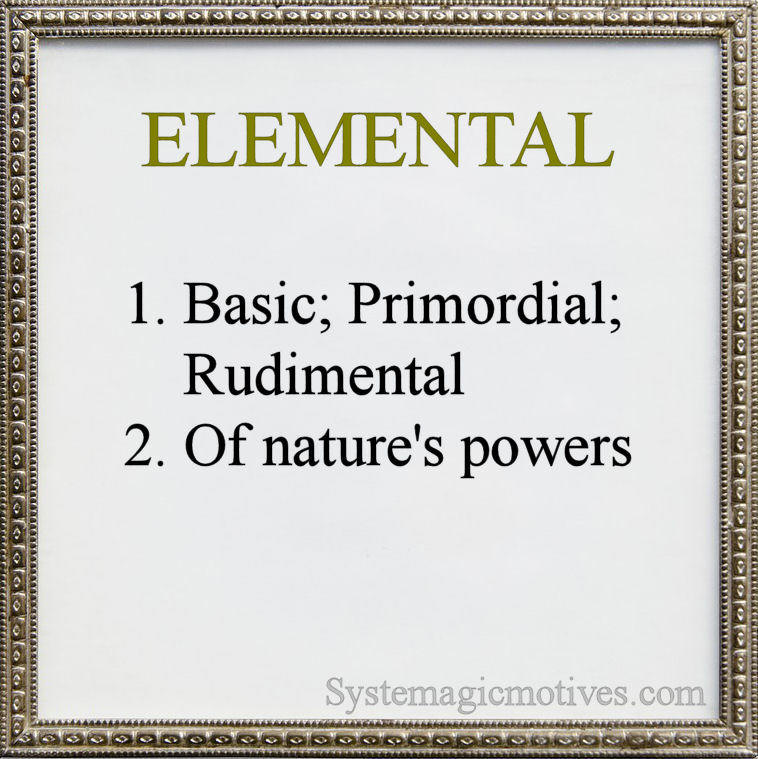The
term "elemental" refers to the fundamental or basic aspects of
something, often relating to the essential components or forces that
make up a system or concept. It is derived from the Latin word
"elementum," meaning a basic or essential component. In various
contexts, "elemental" denotes something that is elemental in nature,
fundamental, or intrinsic to the structure and function of a whole.
This can encompass physical elements such as earth, water, fire, and
air, which are often considered the building blocks of nature in
classical and philosophical traditions or it can describe The Universal Laws that govern existence everywhere.
In
a broader sense, "elemental" can also describe essential qualities or
principles underlying a particular phenomenon or concept. For instance,
when referring to "elemental forces," one might be discussing the basic
and powerful natural forces that drive processes in the world, such as
gravity, magnetism, or weather patterns. In literature and art,
"elemental" might describe themes or motifs that are deeply rooted in
fundamental human experiences and emotions, like the struggle for
survival or the quest for harmony with nature.
Overall,
"elemental" emphasizes the importance of fundamental components and
essential forces that shape and influence various systems and
phenomena. It highlights the foundational aspects that are crucial for
understanding and engaging with the world around us. Whether discussing
natural elements, essential qualities, or core principles, the term
reflects a focus on the basic, intrinsic parts that underpin and define
a broader context.

